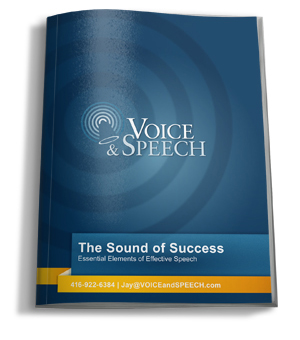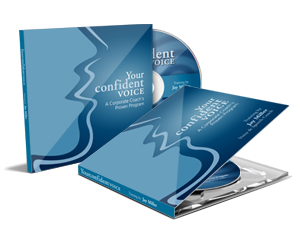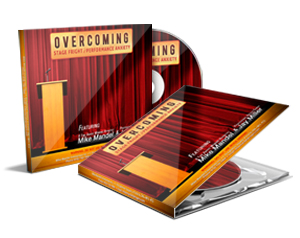Staying Power
Cultivating Vocal Stamina
I recently did a consultation with someone who worked as a corporate trainer, so she spoke frequently, for extended periods of time. She reported that her voice was usually gone by the end of the day, sore, raspy and almost inaudible.
What’s happening here? The most likely cause is that she’s overworking her voice, and that can happen in two ways. The most obvious possibility is that she’s consciously trying to “speak up” and “project” her voice, so she ends up pushing and straining. The muscles of the voice are not big, strong muscles, so they don’t perform well under a lot of pressure and fatigue quickly under those conditions.
Another culprit can be unconscious tension. Muscular tension creates resistance on your voice, much like friction creates resistance for moving parts in a machine. You have to exert more force to overcome that resistance and that wears on your voice.
One very common source of unconscious tension is the tongue. Many speakers unconsciously pull their tongue back and down every time they make a sound. The tongue is a fairly large muscle, especially in comparison to your vocal folds, which are about the size of your thumbnail. When your tongue pulls back and down, it’s like an elephant sitting on a mouse. It becomes a lot harder for your vocal folds to vibrate under those conditions, so you have to use more force to overcome that pressure. Once again, your vocal folds quickly fatigue and become irritated.
So what’s the right way to cultivate vocal stamina? To paraphrase Kristin Linklater, the strength of the voice does not lie in muscular effort, but in breath and resonance. You’re a wind instrument. Your voice is powered by breath. To find more voice, you must move more breath. (The tricky part is doing that without tension.) At some level, everyone knows this, but few people have actually experienced real breath support, as it relates to speaking.
While breath is the power of your voice, resonance is the amplification. Resonance takes the small buzz produced by your vocal folds and expands it into the unique sound that is your voice. In a perfect world, you want every open space and every square inch of your body surface vibrating with the sound of your voice. That way, you spread the effort around, rather than making your vocal folds do all the work. Not only do you strengthen your voice, you also make it deeper, richer and more expressive.
There’s no reason why you shouldn’t be able to speak all day, in a fairly large room, without frying your voice. You accomplish that by making sure your breath is doing all the work and your whole body is acting as a giant sounding board. In this way, you produce the maximum amount of sound with minimum effort. Your voice easily fills the space without you feeling as though you’re yelling. Your listeners are drawn into the experience because you are fully engaged, fully available and powerfully present.
 The Sound of Success
The Sound of SuccessEnroll in this FREE video mini course and discover a powerfully attractive voice.
 Your Confident Voice
Your Confident VoiceThis 145-minute mp3 download is a complete speaking voice course. The simple but amazingly effective program is on sale this month!
 Overcoming Stage Fright
and
Overcoming Stage Fright
andPerformance Anxiety
On this mp3 download, Jay Miller teams up with six-time award-winning hypnotist Dr. Mike Mandel to deliver the most comprehensive program available for reducing or eliminating stage fright.